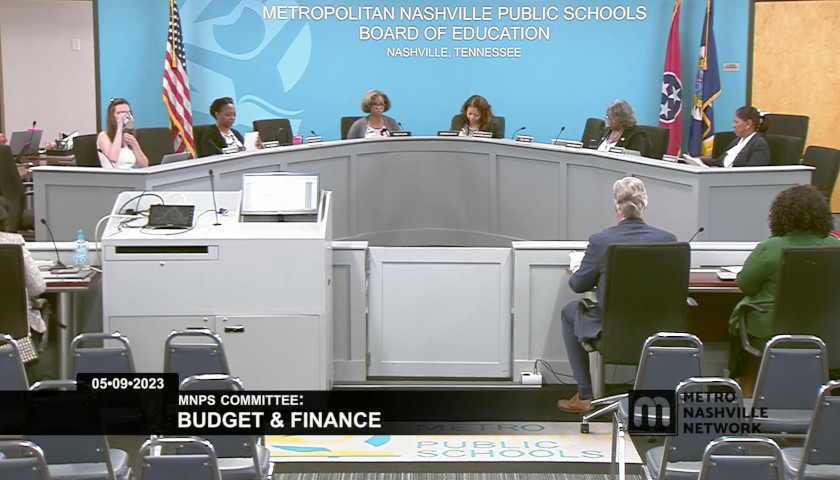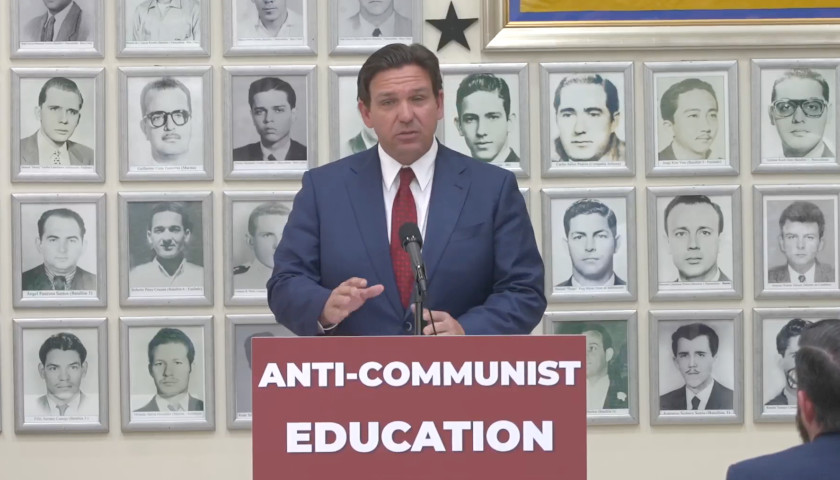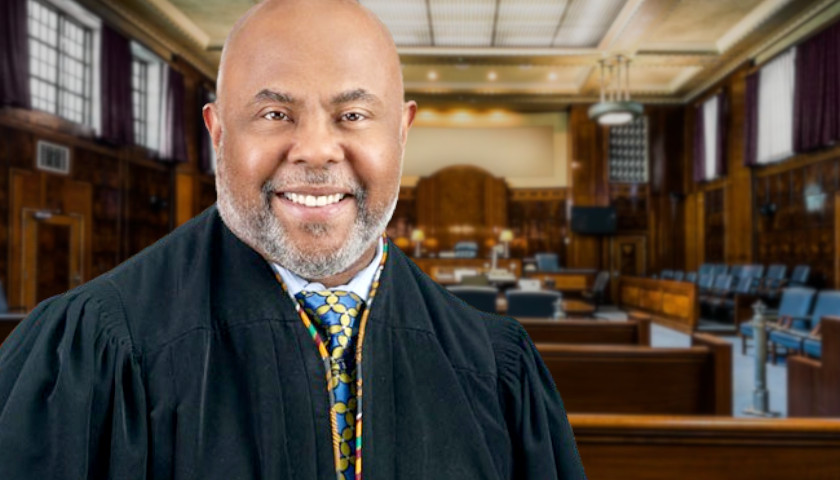The Metro Nashville Public Schools(MNPS) board revealed its proposed budget on Tuesday for the upcoming 2023 -2024 school year. The requested budget 0f over $1.2 million is drawn from the aspirational budget submitted to Mayor John Cooper by MNPS. It reflects the additional $100 million in school funding included in his proposed Metro budget.
Under the new funding formula, Tennessee Investment in Student Success (TISA), the state is to pay for 70 percent of base and weights while the local contribution is 30 percent. That is the statewide formula, but each district has a different share based on the fiscal capacity index.
Nashville pays a higher portion of the annual budget due to its increased ability to pay due to the high tax revenues generated by city tourism.
MNPS spokesman Sean Braisted told The Tennessee Star, “For Nashville, the TISA formula generates $771,063,837.70 for Davidson County schools (MNPS, Public Charter Commission, ASD). The state covers $329,754,561.52 (42.7%), and $441,309,276.18 (57.2%) is local.
MNPS’s proposed budget for the upcoming year calls for $41,948 in increased employee compensation. Of that amount, $15,832,400 is dedicated to a 4 percent cost of living raise for teachers. An additional $7,319,500 will go to teacher step increases. Step raises are awarded to teachers as they earn years of service.
In 2012, Metro increased pay for entry-level teachers by freezing step increases for teachers with more experience. Under MNPS Director of Schools Adrienne Battle, MNPS has included them in the budget process. Step increases are considered an important element in teacher retention.
Additional funds will be used for increased pay for principals and other building administrators. MNPS has proposed $5,900,000 to increase those salaries by an average of 11.7 percent. Administrators have not received raises in nearly a decade.
Both a step increase and a cost of living raise of 4% are proposed for nutrition service workers. During the board’s budget and finance meeting, Battle told board members about staffing challenges and the need to raise salaries to help mitigate those issues through a pay raise.
In addition to employee compensation, the budget proposes a $10.8 million investment in classroom associates. Classroom associates are employees assigned full-time to individual schools and can serve as substitute teachers when required. As full-time employees, they are eligible for benefits and professional development opportunities. This initiative is seen as a way to combat long-term sub shortages. It also provides a means to maintain continuous learning for students.
Braisted told The Star, “One of the top priorities is ensuring students are well-served when there are teacher vacancies and absences. To provide a more effective solution to school staff absences, MNPS created classroom associates, a permanent, school-based position that the district funds for all schools. These are currently called general school assistants.”
Braisted said, “The job duties for this position are flexible by design. They cover classrooms when a teacher is absent for a short-term or long-term need. When classrooms are fully staffed, they can monitor lunch duty, sit at the front desk, assist with family outreach, or support any other administrative task.”
He added, “This plan adheres to emerging national best practices as the teachers are full-time employees with benefits, access to training available to other support staff, they are part of the school’s safety plan and participate in safety drills, and have the ability to know and understand the school’s culture, students, and faculty. Dr. Battle has proposed significantly increasing the number of these positions at each school in the budget, and Mayor Cooper has proposed $10.8 million in his budget to do just that.”
The funding allows for an additional 314 employees. Currently, MNPS has 187 classroom associates in place.
Traditional subs will still be used by the district. When Board Member Abigail Tylor asked about the lack of a pay increase for those individuals, Battle responded that the district still recognized the need for traditional substitute teachers but chose to “invest in those key strategies that will move the needle.”
Tylor voiced support for the classroom associates program but asked that the conversation about increased sub pay continue soon.
“Since the way they are being utilized is changing, perhaps the bonus and compensation structure should change as well,” she said.
Substitutes are currently awarded a bonus for 10 consecutive days worked.
MNPS expects to deliver $258,161,600 to the city’s 27 charter schools this year. That is an increase of $22 million over last year.
Of that total figure, $212,389,000 will flow through the school district, while the remaining will go direct to the Public Charter Commission and the Achievement School District. The two combined manage an additional eight charter schools.
For charter schools under their purview, MNPS anticipates an increased enrollment of 113 students.
Chief Finance Officer Chris Henson told board members, “There will be a change in this year’s funding calculations. Every charter school will now have a separate and distinct per pupil funding based upon the awaited student funding formula, as well as the additional local funding that we will see in our operating budget.”
The current budget proposal shows a per-pupil funding rate of $16,295. That number is arrived at independently of TISA. The TDOE has not provided the final TISA calculations.
Henson added, “We are still working with the Tennessee Department of Education on exactly how that calculation would be made.”
MNPS already utilizes school-based funding for their traditional schools. That formula does not mirror the state’s formula, so individual school budgets for the upcoming school year have already been approved.
The proposed budget advances to Metro Council, which may approve it or amend the funding level. Neither Metro Council nor the mayor can designate specific funding.
Braisted said, “We don’t anticipate significant changes to the budget, however, the Metro Council may adjust the Mayor’s proposed budget and the Board of Education ultimately has approval over the budget.”
The fiscal year begins on July 1.
– – –
TC Weber is a reporter at The Tennessee Star and The Star News Network. He also writes the blog Dad Gone Wild. Follow TC on Twitter. Email tips to [email protected]. He’s the proud parent of two public school children and the spouse of a public school teacher.








